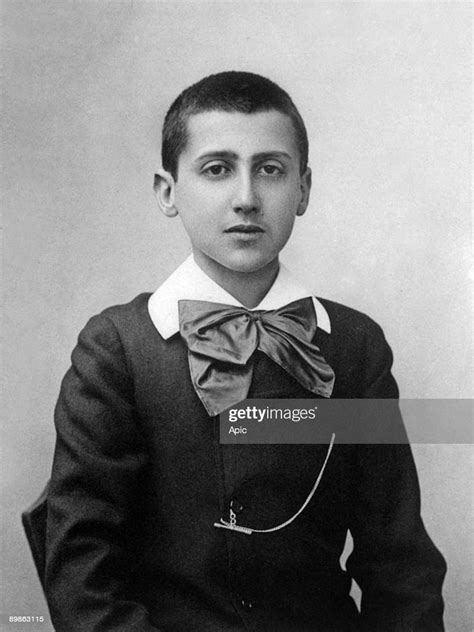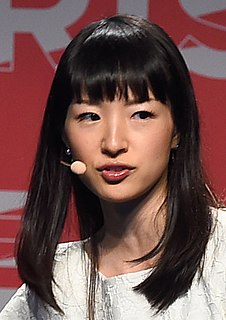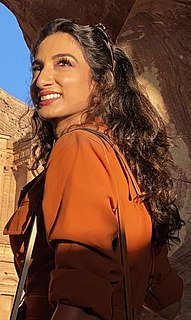A Quote by Hope Jahren
It's very important to put children in an environment where they can take things apart; where they can break things and then learn to fix them; where they can trust their hands and know their capacity to manipulate objects.
Related Quotes
We buy things. We wear them or put them on our walls, or sit on them, but anyone who wants to can take them away from us. Or break them.
...
Long after he's dead, someone else will own those stupid little boxes, and then someone after him, just as someone owned them before he did. But no one ever thinks of that: objects survive us and go on living. It's stupid to believe we own them. And it's sinful for them to be so important.
Implanting spiritual ideas in children is very important. Many people live their entire lives according to the concepts that are implanted in them in childhood. When children learn they will get the most attention and love through doing constructive things, they will tend to stop doing destructive things. Most important of all, remember that children learn through example. No matter what you say it is what you do that will have an influence on them.
In the past decade or so, the women's magazines have taken to running home-handyperson articles suggesting that women can learn to fix things just as well as men. These articles are apparently based on the ludicrous assumption that _men_ know how to fix things, when in fact all they know how to do is _look_ at things in a certain squinty-eyed manner, which they learned in Wood Shop; eventually, when enough things in the home are broken, they take a job requiring them to transfer to another home.
The people who are horrified by the idea of children learning what they want to learn when they want to learn it have not accepted the very elementary psychological fact that people (all people, of every age) remember the things that are important to them - the things they need to know - and forget the rest.
I believe that everything happens for a reason. People change so that you can learn to let go, things go wrong so that you appreciate them when they're right, you believe lies so you eventually learn to trust no one but yourself, and sometimes good things fall apart so better things can fall together.
The objects you decide to keep, the ones that gave you the spark of joy? Treasure them from now on. When you put things away, you can actually audibly say, 'Hey, thank you for the good work today...' By doing so, it becomes easier for you to put the objects away and treasure them, which prolongs the spark of joy environment.
Making fiction for children, making books for children, isn't something you do for money. It's something you do because what children read and learn and see and take in changes them and forms them, and they make the future. They make the world we're going to wind up in, the world that will be here when we're gone. Which sounds preachy (and is more than you need for a quotebyte) but it's true. I want to tell kids important things, and I want them to love stories and love reading and love finding things out. I want them to be brave and wise. So I write for them.
These are the things I learned: share everything, play fair. Don't hit people. Put things back where you found them. Clean up your own mess. Don't take things that aren't yours. Say you're sorry when you hurt somebody. Wash your hands before you eat. Warm cookies and cold milk are good for you. Live a balanced life. Learn some and think some and draw some and paint and sing and dance and play and work some every day. Take a nap every afternoon, and, when you go out into the world, watch for traffic, hold hands, and stick together.





































